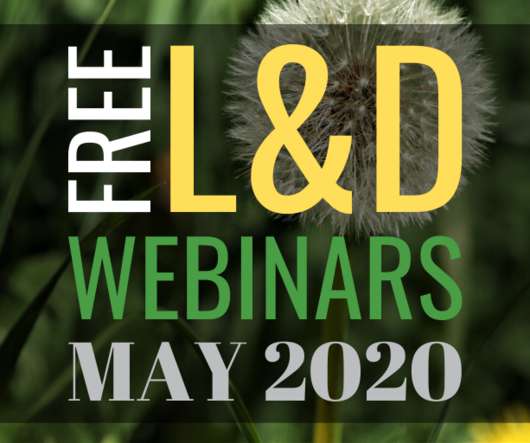Power of informal learning in developing managers
Jay Cross's Informal Learning
OCTOBER 20, 2009
Here’s a six-year old article on informal learning I discovered while Googling for material on learning transfer. Informal Learning and the Transfer of Learning: How Managers Develop Proficiency. 4, Winter 2003. For example, McCall et al. Enos, Marijke Thamm Kehrhahn, Alexandra Bell.








































Let's personalize your content